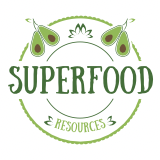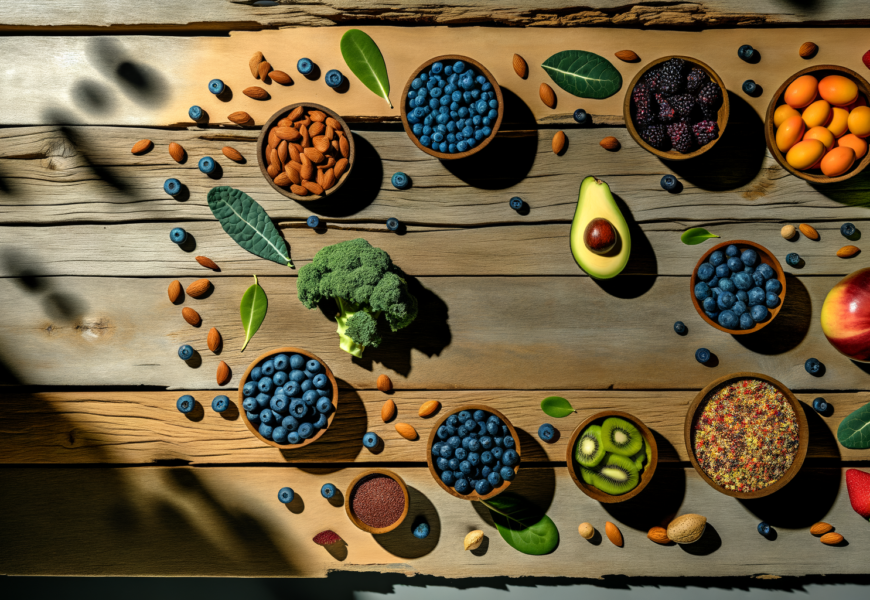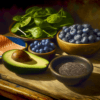Discover essential superfood diet and nutrition tips to enhance your health, boost energy levels, and support overall well-being. Learn how to incorporate superfoods into your daily meals with ease.
Welcome to your ultimate guide to superfood diet and nutrition tips! In today's fast-paced world, maintaining a balanced diet is more crucial than ever. Superfoods are nutrient-rich powerhouses that provide essential vitamins, minerals, and antioxidants. By incorporating them into your daily meals, you can significantly enhance your health and energy levels. Ready to transform your diet and experience the benefits of superfoods? Let's dive in!
Understanding Superfoods
To begin, let’s explore what superfoods are. Superfoods are nutrient-dense foods considered highly beneficial for health and well-being. Laden with antioxidants, vitamins, and essential minerals, these foods stand out because they provide more nutritional value per serving compared to other foods.
Common characteristics of superfoods include high levels of antioxidants, such as polyphenols, vitamins (notably vitamins A, C, and E), and minerals like magnesium and potassium. These nutritional powerhouses can help reduce inflammation, support gut health, boost immunity, and enhance overall vitality.
Superfoods can be integral to a balanced diet, providing that extra nutritional kick that may be missing from standard dietary staples. Including a variety of superfoods in your daily meals can support a strong immune system, aid in digestion, and promote long-term health.
Top Superfoods to Include in Your Diet
Let's explore some of the top superfoods you should consider incorporating into your diet:
Berries: Berries like blueberries, strawberries, and raspberries are rich in antioxidants and vitamins. They help fight inflammation and are great for brain health. These berries are also high in fiber, which aids digestion and can help with weight management.
Leafy Greens: Leafy greens such as spinach, kale, and Swiss chard are excellent sources of essential nutrients. They are low in calories yet rich in vitamins A, C, and K, as well as iron and calcium. These greens are perfect for boosting energy levels and supporting bone health.
Nuts and Seeds: Incorporating nuts like walnuts and seeds like chia and flaxseeds into your diet can provide healthy fats, fiber, and protein. These foods also contain omega-3 fatty acids, which are crucial for heart and brain health.
Healthy Fats: Avocados, olive oil, and coconut oil are fantastic sources of healthy fats. These fats improve heart health, support brain function, and provide sustained energy. They also help in the absorption of fat-soluble vitamins.
Whole Grains: Opt for whole grains such as quinoa, brown rice, and oats instead of refined grains. Whole grains are high in fiber, which helps regulate blood sugar levels and supports digestive health.
Lean Proteins: Foods like salmon, chicken breast, and lentils are excellent sources of lean protein. Proteins are essential for muscle repair, energy, and overall bodily function.
Fermented Foods: Fermented foods like kefir, kimchi, and sauerkraut are packed with probiotics that promote gut health. A healthy gut can enhance immunity, improve digestion, and even positively impact mental health.
Nutrition Tips for Incorporating Superfoods
Incorporating superfoods into your diet doesn't have to be complicated. Here are some practical tips:
Start small and gradually increase intake: If you're new to superfoods, start by adding one or two to your meals each week. Slowly increase your intake as you become accustomed to their flavors and benefits.
Combine superfoods for maximum benefits: Pairing different superfoods can amplify their health benefits. For instance, adding berries to your oatmeal can provide a powerful antioxidant boost alongside fiber and nutrients from the oats.
Plan your meals: Meal planning is an effective way to consistently integrate superfoods into your diet. Plan your week ahead, ensuring you include a variety of superfoods in each meal.
Easy superfood recipes: Simple recipes can make it easier to incorporate superfoods. Here are some sample ideas for each meal:
- Breakfast: Smoothie bowl with spinach, chia seeds, blueberries, and avocado.
- Lunch: Quinoa salad with kale, walnuts, and pomegranate seeds.
- Dinner: Grilled salmon with a side of Swiss chard and brown rice.
Benefits of Superfoods
Including superfoods in your diet provides a myriad of health benefits:
- Improved digestion: The fiber content in many superfoods promotes a healthy digestive system.
- Enhanced immune system: Nutrient-dense superfoods support a robust immune response.
- Increased energy levels: Many superfoods provide sustainable energy, avoiding the crash associated with high-sugar foods.
- Weight management: Superfoods like leafy greens and whole grains can aid in satiety, helping manage weight effectively.
- Reduced risk of chronic diseases: Regular consumption of superfoods helps lower the risk of chronic diseases such as heart disease, diabetes, and cancer due to their anti-inflammatory properties.
Common Mistakes to Avoid
While superfoods are incredibly beneficial, there are common pitfalls to avoid:
- Relying solely on superfoods: A balanced diet is more than just superfoods. Ensure your diet includes a variety of foods to meet all nutritional needs.
- Ignoring portion sizes: Even healthy foods can contribute to weight gain if consumed in large quantities. Always be mindful of serving sizes.
- Not diversifying superfood choices: Eating a wide range of superfoods ensures a broader spectrum of nutrients. Don’t just stick to one type.
- Overlooking potential allergens: Some superfoods like nuts or berries can cause allergic reactions in sensitive individuals. Always be cautious and aware of any personal allergies.
Superfood Diet Plan
To help you get started, here’s an example of a weekly superfood meal plan:
Monday:
- Breakfast: Oatmeal topped with chia seeds and strawberries.
- Lunch: Spinach and quinoa salad with avocado and walnuts.
- Dinner: Grilled chicken breast with a side of kale and sweet potatoes.
Tuesday:
- Breakfast: Smoothie with kefir, blueberries, and flaxseeds.
- Lunch: Whole grain wrap with Swiss chard, hummus, and mixed vegetables.
- Dinner: Baked salmon with brown rice and steamed broccoli.
Wednesday: Repeat similar superfood-rich meals ensuring variety and balance throughout the week.
Shopping list:
- Fresh produce including berries, leafy greens, avocados.
- Lean proteins such as chicken breast and salmon.
- Whole grains like quinoa and brown rice.
- Nuts and seeds such as walnuts, chia seeds, and flaxseeds.
- Fermented foods including kefir and kimchi.
Tips for staying committed:
- Keep your pantry stocked with essential superfoods.
- Experiment with new recipes to keep meals exciting.
- Join a community or find a buddy for mutual support and motivation.
By now, you should have a comprehensive understanding of how superfoods can transform your diet and overall well-being. Incorporating these nutrient-rich foods into your meals doesn't have to be daunting—start small, follow our tips, and watch your health improve over time. Ready to take the plunge into a healthier, superfood-powered lifestyle? Begin your journey today and discover the incredible benefits of a superfood diet. Don't forget to bookmark this guide and check back for more nutrition tips and recipes!










